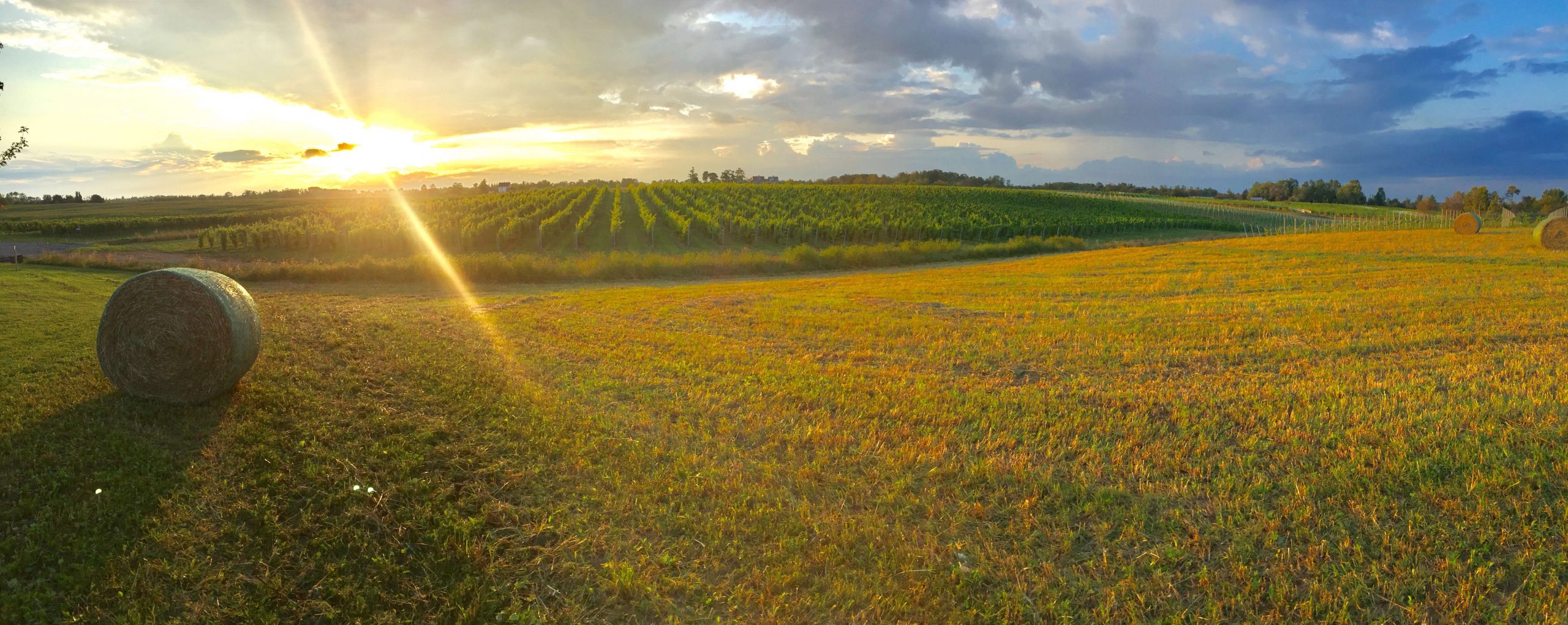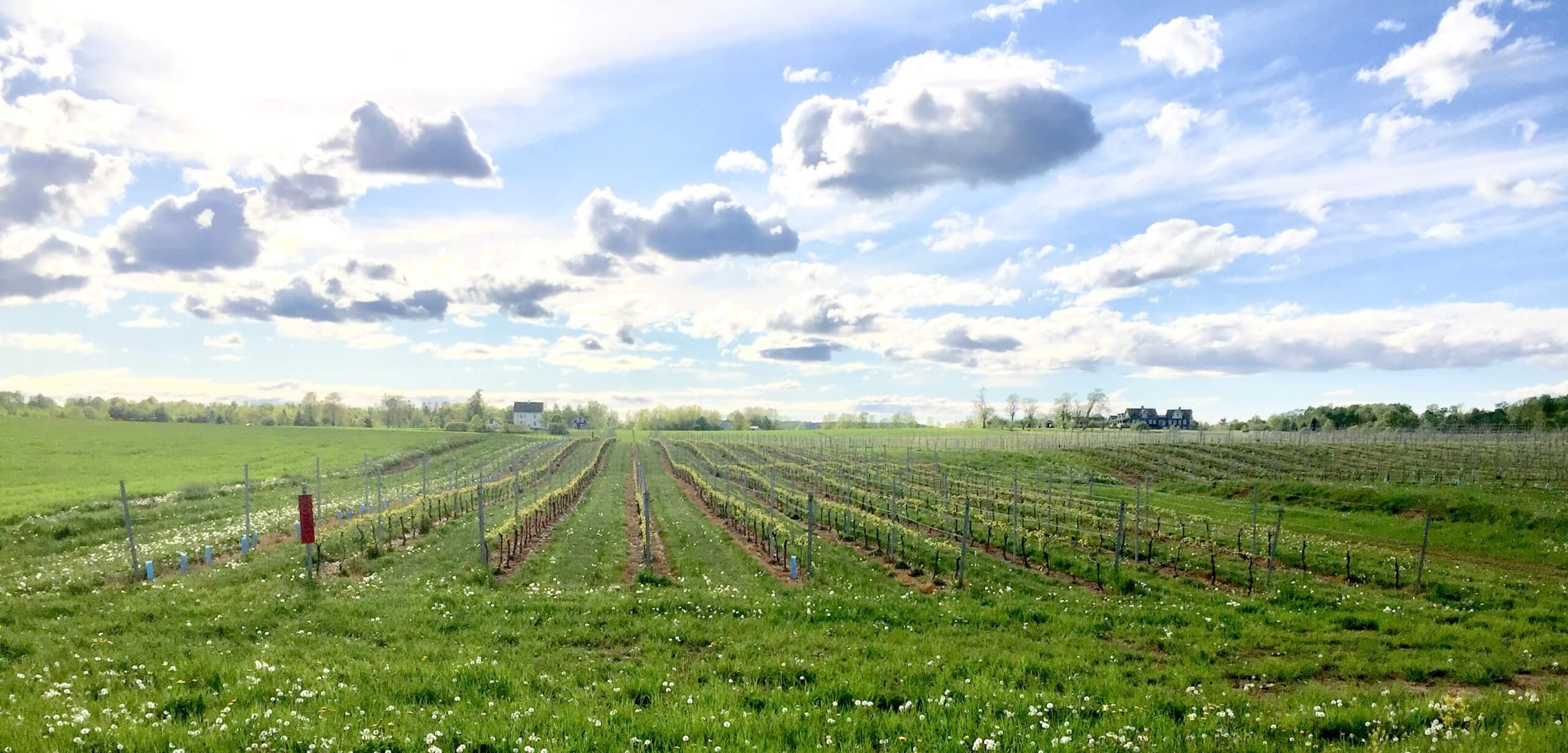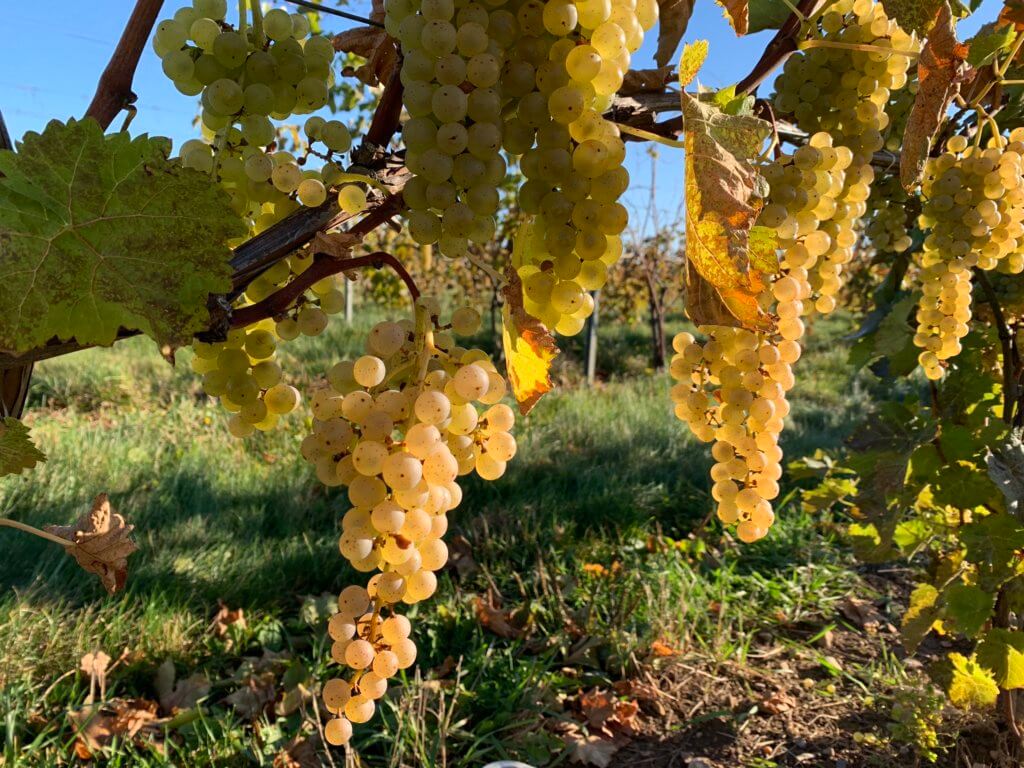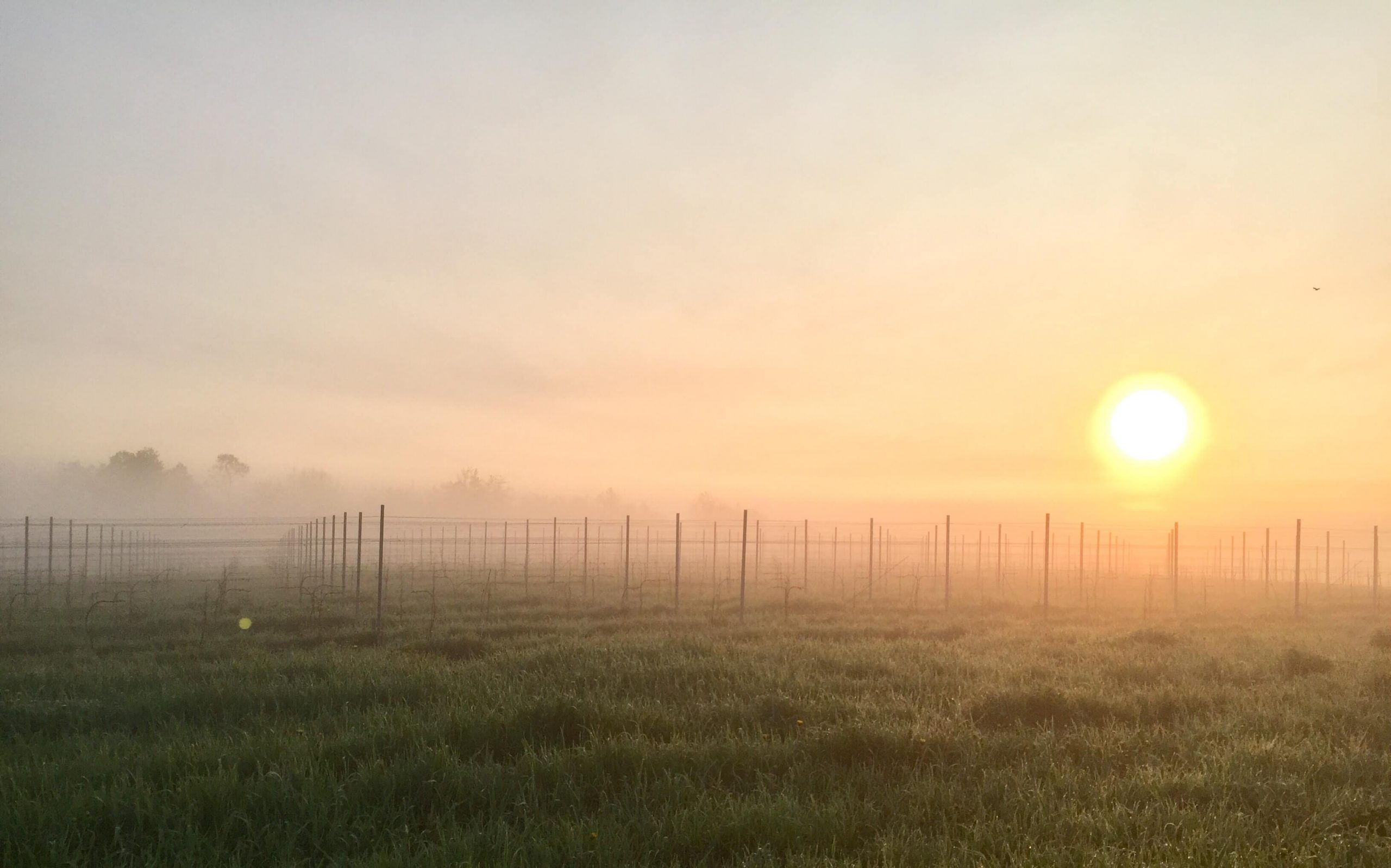So You Want to Go Organic…..
- First of all, why? The main reason Johnston Vineyards is going organic is to protect the owners and employees from the toxic effects of synthetic chemicals. These chemicals may also be found in the wine which in time should provide incentive to wineries to produce more organic wines. I don’t believe that grape quality is much better grown organically. Perhaps the lower yield often seen with organic methods contributes favorably to ripeness and juice complexity. More frequent spraying with organic farming adds to air pollution and soil compaction due to more tractor usage. Copper buildup occurs in the soil which can be harmful to grape vines. Taking the next step to biodynamic farming doesn’t seem to be based on scientific evidence. Sustainable farming is a useful step towards organic farming where synthetic chemicals are used sparingly. The recommendations in this article have been generated from discussions with agronomists, vineyard managers and suppliers. In the absence of any published local information pertinent to larger Nova Scotia vineyards, I thought it best to provide these guidelines for the use of others planning to go organic. After one year of experience they still stand!
Soil preparation
- Deep tilling of clay soil is important to root development of newly planted vines. Vines planted by machine (Vinetech) get off to a better start than those planted in hand dug holes. Wet areas need good drainage. It is important to review new tile drainage (Eastern Tile Drainage) for pooling of water and place clean gravel in trenches dug down to the tile in these areas.
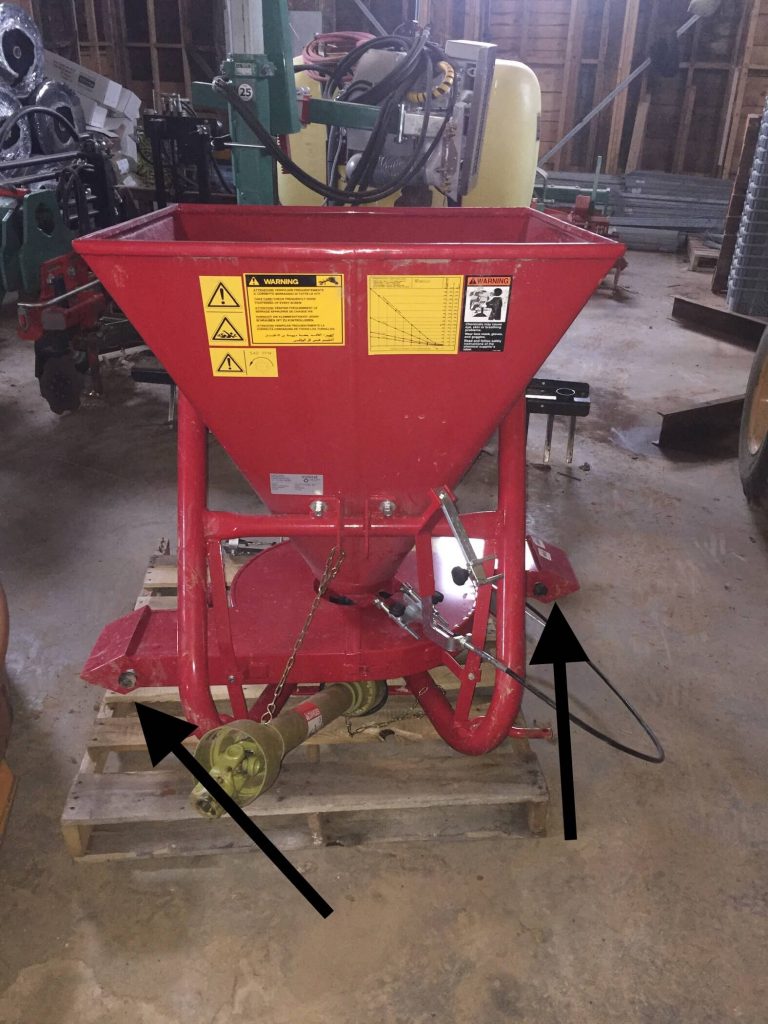
Double sided spreader marked by arrows.
- Phosphorus, nitrogen and potassium need to be assessed each year and added to the soil if indicated. There doesn’t seem to be a practical source of organic granular NPK. If soil testing indicates the need, it may be best to spread raw chicken manure the fall before planting. This is the cheapest and most effective way to raise NPK levels. Smaller quantities of raw organic chicken manure may be available from Lightfoot & Wolfville Winery. Raw nonorganic chicken manure (Merks Farms Ltd 902-542-4200) can be spread before planting but it will be necessary to wait 3 years for organic certification. All rates of application are available from LP Consulting (Lise LeBlanc). Once the vines are planted, and in the absence of organic composted manure (I am unaware of a source), the most logical form of organic NPK is chicken manure pellets (Scotian Gold). They are expensive but if spread with a double sided spreader (See picture – available from Scotian Gold – holds 400 Kg; price about 1800$), the cost is much lower. The amount needed to spread based on a 2 foot wide space under the vines can be calculated. Spreading raw chicken manure after vines are planted is not recommended as it is too “hot” and may burn the plants. Also it is hard to spread uniformly. Nitrogen is measured in the petioles or leaves of the vines, not in the soil. Grape vines require a lot less nitrogen than most crops. It is important to avoid excessive vegetative growth which will divert energy from the grapes and also delay hardening off of the vines. Organomex (Scotian Gold – 4L/ha) can be applied as a foliar spray in the spring and early summer every 2 weeks routinely or if plants appear low in nitrogen.
- Micronutrients and risk of frost was addressed by Pat Johnson, a consultant brought in from Ontario by Scott Coleman of Scotian Gold to advise on ways to reduce frost risk after the devastating frost of June 4, 2018. The seaweed derivative Stella Maris (Scotian Gold – 5L/ha) can be combined with the Organomex to provide a range of micronutrients. It is thought that these compounds act as free radical scavengers. I believe that Symspray (Scotian Gold) could also be used in place of Stella Maris. It would seem reasonable to spray just after bud break and every week or so until the risk of frost is over. Foliar potassium has been recommended as a way to protect against frost damage (circumstantial evidence). This might be achieved by spraying K-Max Lite 0-0-15 (Scotian Gold) within a couple of days of the predicted frost (2.5 L/acre/application). Ultimately however, the only good solution to frost damage may be installation of turbines or use of smudgepots.
- Potassium is routinely applied as a spray (K-Max Lite 0-0-15) 3-4 times from mid summer to fall (2.5 L/acre/application). If plants and/or soil are low in potassium, a granular form (K-0-0-50) can be applied in the fall (Truro Agromart 902-895-2857) based on previous soil samples. Soil levels should be > 350 ppm.
- Calcium (in the form of gypsum), if recommended, can be applied (0.8-2.4 tons/acre). It is obtained from Shaw Resources @ 17$/tonne (902-758-4730). It is hauled by Riverside Custom Trucking (902-790-0508). Boron is applied as SprayBor Lite (Nutria Ltd – available from Truro Agromart) at tight cluster. It is applied as a foliar spray (1 lb/acre) and to the ground (1 lb/acre). Most Nova Scotia soil is deficient in Boron and it is essential for grape development. Zinc Dextro-Lac 10% (Truro Agromart) (1 L/acre) + Iron Dextro-Lac 5.5% (Truro Agromart) (1 L/acre) apply 2 weeks before bloom and 2 weeks later at 4 inches of shoot growth.
Pesticides
- Purespray Green (Scotian Gold) is a mineral oil dormant spray (1% solution) that is applied before bud break to control mites and powdery mildew. It should be applied outside a 2 week window for application of Kummulus
- The 2 main pesticides are Sulfur (Kummulus) for powdery mildew and Copper (Copper 53W) for downy mildew (Scotian Gold or Truro Agromax). The doses used are 1.7 kg/acre and 0.4 kg/acre, respectively. The copper dose is in line with European Union recommendations to prevent copper buildup in the soil. Kummulus will burn the leaves of Muscat and Marchel Foch and should be avoided. It is applied to Cabernet Foch without any harmful effects. These 2 chemicals can be sprayed together with Organomex and Stella Maris. The Kummulus and Copper are sprayed every 2 weeks or after every rain fall of 10 mm or more and continued into August.
- Botrytis: Serenade is applied (1.7-3.3 kg/Ha) at bloom, bunch closure, veraison and pre-harvest. Is is also good for powdery mildew but because of its cost its application is limited to the grapes. This can be alternated (especially in botrytis-sensitive vinifera varieties) with potassium Carbonate (2.3 kg/acre) (Winemakeri 902-864-0100). If botrytis is a problem Double Nickel 55 (1.25-5 kg/ha) can be used.
Organic Certification
- Kristi Barclay (Kristibarclay@gmail.com) will do all the paperwork for organic certification with Ecocert (418-838-6941). She charges a modest fee. Procert is an alternative certifying organization but is not as convenient to work with.
Sampling tips
-
- Tips from the NS Department of Agriculture on sampling and interpretation of results are available at
Weeding
- Extra weeds are synonymous with organic farming. A grape hoe is essential for any vineyard in the range of 5 acres or more. Hand weeding will still be needed around the vine trunks.
